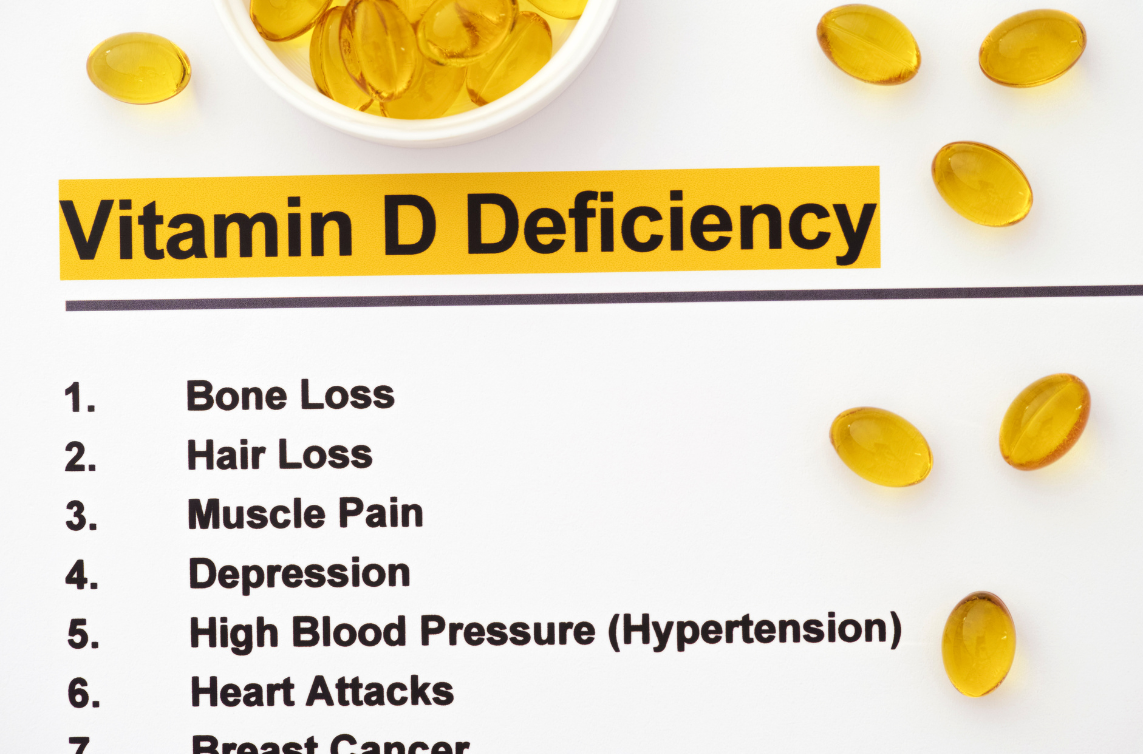There’s alot of confusion and controversy out there about Vitamin D. After reviewing many resources, I wanted to share with you what I learned. Hopefully it will help guide you in your vitamin D decisions.
Why do we even need vitamin D?
Our body needs vitamin D to regulate the levels of calcium and phosphorus in our blood and to help absorb calcium to keep our bones strong.
Vitamin D is also a chemical messenger for functions that need to happen in our organs and tissues, including our skin, gut, prostate, lung, bone, parathyroid gland and pancreas.
What are the symptoms of low vitamin D?
How do you feel if you are low in vitamin D? You may not notice anything or might have muscle weakness or pain, bone pain, lower back pain, leg pain, difficulty walking, and higher risk for falls and breaking bones.
Should I have my vitamin D level checked?
There is some controversy on how reliable vitamin D tests are because levels decrease in response to inflammation.
Most of the organizations that make health recommendations agree that if you have any of the following you should get your D level checked.
- Digestive problems that interfere with absorbing nutrients. Examples would be weight loss surgery, short bowel syndrome, pancreatitis, inflammatory bowel disease, or celiac disease.
- You are very inactive, sitting most of the time
- You don’t get much sun or live in a northern climate (like me in Minnesota!)
- You naturally have darker skin
- You are 65 or older
- You have liver disease or kidney problems
- You have cystic fibrosis
- You take medications called glucocorticoids or anticonvulsants. they interfere with vitamin D absorption. Ask your doctor or pharmacist if your medications are in that category.
What should my level be?
Optimal ranges recommended vary from different organizations. Mayo Clinic’s optimal range is 25-80 ng/ml and the American Association of Clinical Endocrinologist (diabetes specialists) recommend 30-50 ng/ml as optimal range.
There are connections between vitamin D and serious health problems.
Muscle Loss
Vitamin D deficiency can lead to major muscle loss. A deficiency increases the risk of muscle loss by 78%, according to researchers at Brazil’s Federal University of São Carlos and University College London in the United Kingdom.
If you are overweight you may need more vitamin D.
Research has suggested that it may metabolize differently if you are overweight and you may need a higher dose to get the same health benefits.
Type 2 diabetes.
There are vitamin D receptors in tissues that respond to insulin and in pancreas cells that produce insulin
If you have prediabetes or diabetes, ask your Dr. about getting your vitamin d blood level checked
Making sure your level is optimal may also help you prevent diabetes. Several studies have shown that vitamin D supplementation lowered the risk of type 2 diabetes by 15% for those with prediabetes.
The Diabetes Prevention Program Study showed that weight loss and exercise lowered risk of type 2 diabetes by 58%.
So losing extra weight is much more effective than supplementing with vitamin D for preventing the progression of prediabetes.
But . . . what if you got your vitamin d to a healthy level AND work on a healthy lifestyle? Imagine what that could do! (By the way, that’s what my new program Your Weigh to Vibrant Life helps you accomplish!)
The study also noted that there was a 76% reduced risk for those that got vitamin D level to 50 ng/mL (125 nmol/L).
Apparently 1000 IU of vitamin D3 should raise the blood level by about 8 to 10 ng/mL. So for me that would mean about 1000 IU daily should get me from 42 to 50!
Vitamin D helps your body’s insulin work better.
Insulin resistance is the main underlying problem with type 2 diabetes, meaning your body is still making insulin but is not using it very well. There is a correlation of less insulin resistance with vitamin D supplementation but the relationship is not yet clear on how it exactly works.
Helps prevent foot ulcers.
This is something people with diabetes have to be very careful about.
The nerve damage that can happen with uncontrolled diabetes increases the risk for foot ulcers. Studies have shown that most people with diabetic foot ulcers have lower vitamin D levels and the worse the ulcer wound, the lower the vitamin D tended to be. Those with the least severe ulcers had vitamin D levels that were more than twice as high as those with most severe ulcer wounds.
Where can I get vitamin D naturally?
We can get vitamin D naturally from the sun or from food. But there aren’t many foods that have enough of it, so we definitely need sunshine. That’s the main source we were meant to get our vitamin D from because our skin makes it from sun exposure.
But isn’t too much sun bad?
All we really need is to have part of our skin exposed to sunshine for 5-15 minutes, 2-3 times a week, during the hours 10am to 3pm.
After that 5-15 minutes you may need to put on sunscreen. Just try to avoid sunscreen with harmful chemicals.
You can download a guide to what to look for in sunscreen at this site.
The best food sources of vitamin D are cod liver oil and oily fish such as salmon, mackerel and sardines. Those fish also happen to be great sources of omega-3! I have more info on omega-3 for diabetes, plus meal ideas in this blog article.
Those same vitamins and foods may also help with depression. Like almost every part of our body, our brain has vitamin D receptors and research suggests that vitamin D may protect the brain from inflammation.
And as I write this article in March, after a long winter with lots of snow, I think everyone agrees with me that we are all ready for sunshine and warmth to boost our mood.
So we need to spend a little time out in the sun every day that we can, and then cook up some salmon once a week for dinner to get even more vitamin D!
Should I take a supplement?
From all of the references I have reviewed, the most common consensus seems to be that if you don’t know your vitamin D level, taking 2000 IU, maybe even 4000 IU daily is probably fine.
But it would be best to have your level tested in case it is deficient. Then you may need more, depending on your health situation.
If you take a supplement, you should know that you also need enough vitamin K2 to help use the vitamin D and calcium. If you don’t have enough K2 then you risk having free calcium in your body that looks for a place to land and that calcium can end up depositing in your arteries, causing plaque buildup and heart problems.
So look for a supplement that has D and A and K. Or contact me and I can give you a recommendation.
How much to take?
The Endocrine Society recommends adults age 19-70 take at least 600 IU daily. For adults over 70 they recommend at least 800 IU daily. But if level is <30 they add that 1500-2000 IU/day may be needed to get level >30 ng/ml.
Can you take too much?
Too much can lead to excess calcium in urine, and that could increase risk for kidney stones plus the risk of extra calcium leading to plaque buildup in arteries. It is rare to have vitamin D toxicity but it is still best to get recommendations based on your specific health situation.
I have seen many patients over the years with low vitamin D levels, and usually the lower the level, the more health problems. But I don’t think we really know what is causing what yet.
So until we have more solid information my efforts will be to get my natural forms of vitamin D from sunshine and foods, check my level annually, and supplement if needed with the appropriate vitamin formula.
Your homework: Go check your lab results and see if you have had your vitamin D checked and if you are in optimal range!







0 Comments